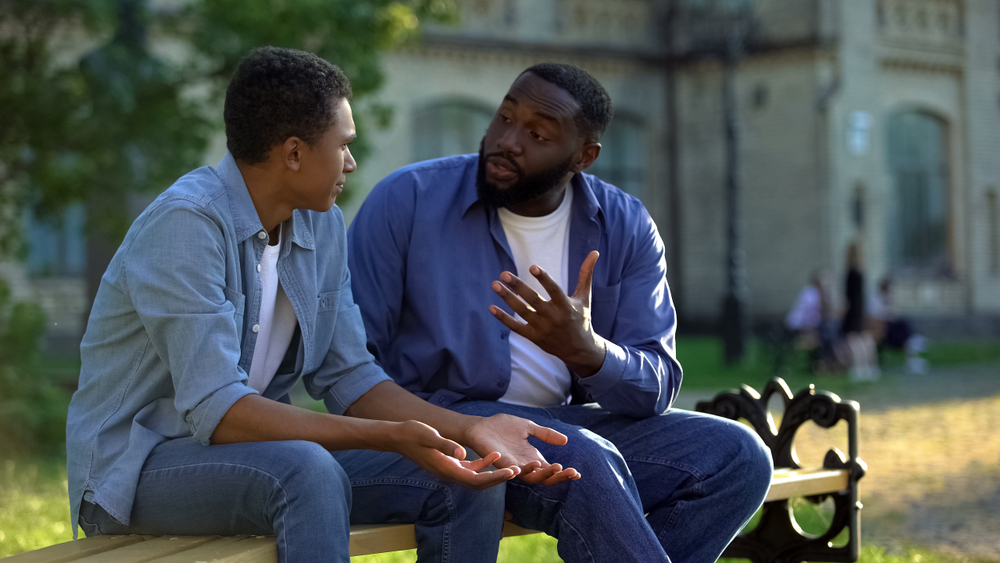It’s hard raising children, and most of us don’t have true respect for it unless we do it ourselves. By the time they’ve reached adulthood, many parents feel their adult children don’t open up and share with them, and they’re left wondering why. This list explores 15 reasons adult children feel like they can’t be honest with their parents.
1. They don’t want to disappoint you.

It’s one of our first feelings as children — we want our parents to be proud of us. So if they’ve done something they think you’ll be disappointed in, your child may avoid communicating about it.
2. They’re afraid you’ll judge them.

No one likes to feel judged, least of all by their own parents. It’s important that your children feel they can tell you anything without judgment or criticism, or they probably won’t open up.
3. They feel misunderstood.

Everyone feels misunderstood sometimes as a kid, and that feeling can certainly carry over to adulthood. Taking the time to understand your adult children and acknowledging that they are still growing and changing as people is crucial.
4. They feel pressure to conform.

Your kids aren’t exactly like you, but they may feel pressure to be, especially when you’ve always placed high expectations on them. Reassure your children that you don’t expect them to be just like you, and see if they don’t disclose a little more information to you over time.
5. They have strong personal boundaries.

If you don’t understand or agree with your adult child’s personal boundaries, they know. If you’ve broken boundaries in the past, your children aren’t likely to trust you not to do it again.
6. They think you won’t listen.

We are all guilty of not listening in conversation sometimes. But if your adult children think you make a habit of not listening when they open up, they’re not likely to keep trying. Try some active listening techniques to make them feel safe opening up.
7. They feel guilty.

Going back to disappointment — kids make mistakes, even adult kids. Once a mistake has come to light, it may be hard for your children to confide in you because of the guilt they feel for disappointing you.
8. They have different values than you.

It can be hard to understand the life choices and decisions made by someone with different values. If your adult children have different values than you, it may feel simpler to just not discuss these matters.
9. They worry you’ll cut them off.

This one is simple. If you’re supporting your child financially, they may be afraid you’ll cut them off. As long as your relationship has clear boundaries and expectations, you can avoid your child being afraid of getting cut off.
10. They don’t want to look like a failure.

We all have hopes and dreams for our children, but it’s not healthy to set unattainable expectations on them. If your child thinks they’ll always look like a failure in your eyes, the chance of them talking to you about their personal life is slim.
11. They want to uphold a certain image.

We tend to take on a certain role as children- and when we get older it may no longer ring true. Your adult children may not want to take away the image you’ve had of them their whole lives by revealing something you may not agree with.
12. They think you’ll try to fix it.

Sometimes we just need a listening ear, and not someone trying to fix our problems for us. Before responding, try making them feel heard by asking if they just want someone to listen, or if they’re looking for suggestions and opinions.
13. They fear confrontation.

Fearing confrontation can be the reason many people don’t divulge more serious information about themselves, and your adult children are no different. As the parent, you’re one of the last people your child wants to get into a confrontation with, so will probably just avoid it by not opening up.
14. They don’t want to affect the relationship.

Relationships of all types have their ups and downs, but if your adult child feels what they’re going to tell you is going to adversely affect their relationship with you, they’re likely just to skip it.
15. It didn’t go so well in the past.

The biggest reason an adult child might not open up to you is if it’s gone poorly in the past. It’s normal to have disagreements occasionally, but if every conversation ends in an argument, your child might just give up trying.



